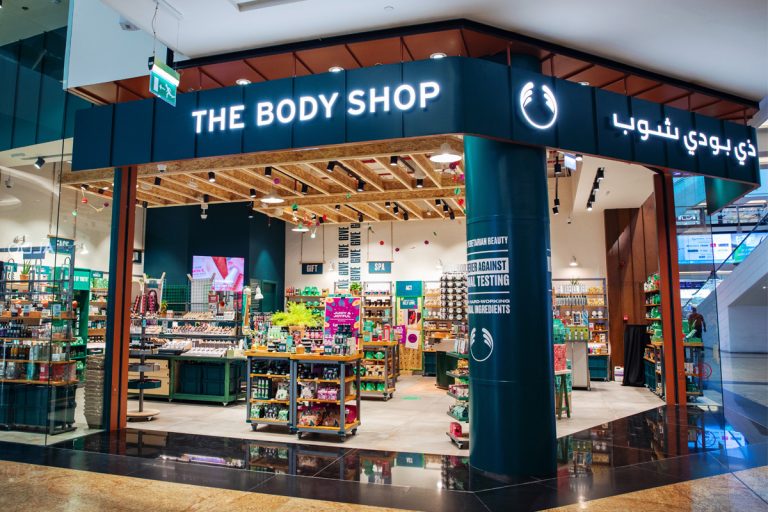While corporate sustainability is on everyone’s minds these days, it is not always easy for consumer brands to pick-up an environmentally and socially responsible agenda from one day to another while maintaining a healthy bottom line.
However, to global beauty brand The Body Shop such a commitment to sustainability is part of their ethos, explained Qas Qayyum, global head franchise managing director at the company.
“We are investing a huge amount of money to drive our sustainability agenda because it is so intrinsic to our purpose to drive a fairer world. So we can’t divorce sustainability from our business perspective because they are so integrated in our being,” said Qayyum.
“We believe in the triple bottom line. We absolutely want to drive profitability but we believe we can do so and at the same time drive impact and positive change for social and environmental causes,” he continued.
Speaking as a franchisee of the beauty brand, Hesham Al Amodi, group CEO of Kamal Osman Jamjoom Group LLC (KOJ), said they are still profitable as a business while still investing in The Body Shop’s social campaigns and asked: “How do you define profitability? What are the levels and boundaries? Do I want to create wealth overnight or is it being happy with what I am doing and having my values and passion match a profitability level that is acceptable to me enough?”
“Brands like The Body Shop extend the value of business to social causes so you can balance the economic and social agenda by being reasonable and realistic with your goals and objectives,” he continued.
Dubai-based KOJ acquired the operators of The Body Shop retail stores within the UAE in April, allowing it to extend that business-segment beyond its already-established stores in western Saudi Arabia, where they have been franchisees for the last 33 years.
The Body Shop has launched a new concept store in Dubai’s Mall of the Emirates which highlights this focus on social and environmental change.

Called the Activist Workshop, the store includes a refill station, where customers can purchase a refillable 300ml aluminium bottle and fill it up with a selection of the brand’s products; and an activism hub, where people can learn more about The Body Shop’s campaigns for social change.
Consumer-response has been highly positive, reflecting the increasing level of awareness about sustainability issues in the region, said Al Amodi adding that “the refill station has been big since day one and consumer feedback has been high regarding the new packaging, which is sustainably sourced so we are already seeing buy-in from customers”.
“It comes down to choices. Because we’re The Body Shop, and have a clearly defined purpose, we have to make choices: we can go for the cheapest products and materials or we can invest in long-term sustainability strategy and we believe there is value in doing it,” said Qayyum.
“When people think of sustainability, there’s all these questions on how to make an impact and whether that will be expensive. So by really driving refills to become mainstream, we are making it more accessible to our customers around the world since getting a refill would cost less than a new bottle,” he explained.

Since KOJ acquired the franchise in the UAE six months, “we’re already sprinting”, said Al Amodi.
“We’ve launched two new stores and plan to open more new shops. The Body Shop is present in all the major malls and shopping apps but we can still do more. I can see the number of units grow but, at the same time, e-commerce is also growing, so we’ve invested in our digital capabilities to enable the omnichannel experience whereby the brand connects with its customers through multiple platforms,” he continued.
KOJ operates more than 650 retail outlets across the region including The Body Shop, Early Learning Centre and Lego, as well as its own home-grown brands Nayomi, Moda, Mihyar, and Mikyajy.
Founded in 1976 in Brighton, England, by Dame Anita Roddick, The Body Shop is a global beauty brand and operates around 3,000 retail locations in more than 70 countries.





